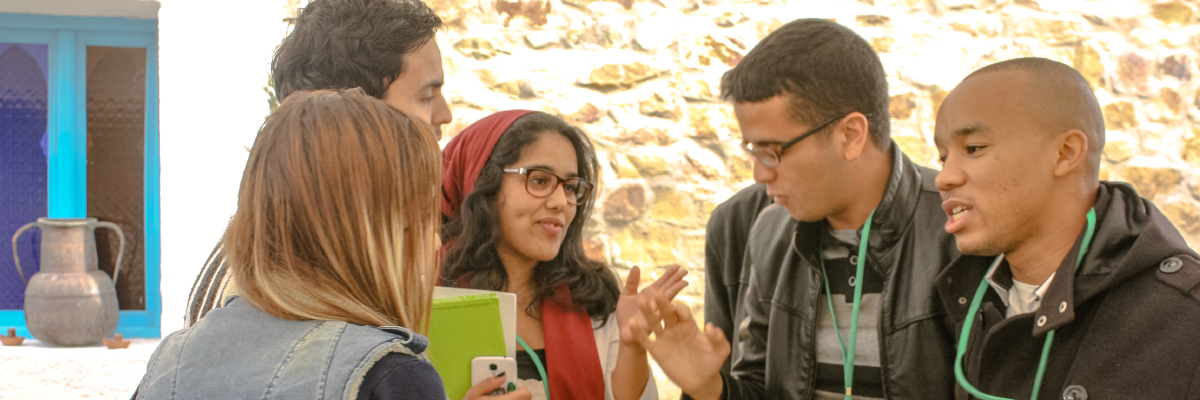That’s why together with the local organization „racines“ and the Heinrich Böll Foundation we conducted a Training of Trainers on our newly developed Simulation Game “Jbeil El-Shams”. The Game tackles the issue of how to make local politicians more accountable. Therefore the participants take over the roles of different local stakeholders and have to come up with solutions to urgent matters of the municipality. The simulation game was then conducted in six municipalities in Morocco by our local trainers.
Target Group
The project was targeting representatives of civil society organizations from 7 different regions of Morocco. Those representatives were then working in tandems to implement the simulation game in their regions together with local politicians and further civil society activists.
Project Goals
We raised the participants’ awareness about their rights when it comes to local decision making processes in Morocco. By helping to understand how local politics work and identify the duties of local politicians the simulation game helped to effectively control them and thus leads to more transparency.During the evaluation we also reflected on why democratic rules are often not put into practice in Morocco and what could be individual entry points to change this. We developed strategies for civil society actors in order to effectively address the needs of the local population. Doing so, we also strengthened the commitment to get involved into political processes, which is then again a key condition to sustainably implement a system of checks and balances.



